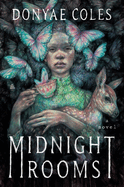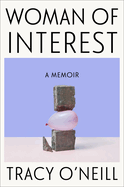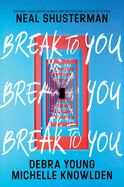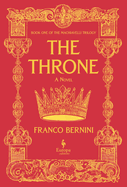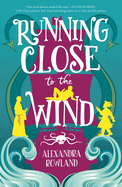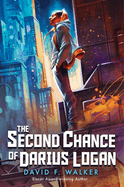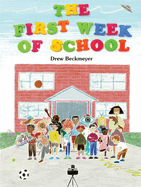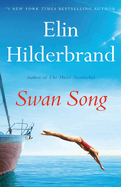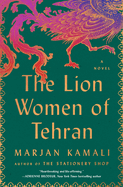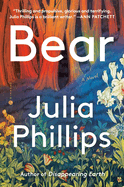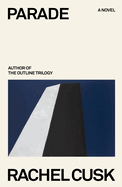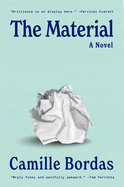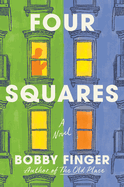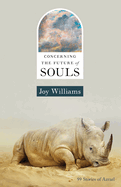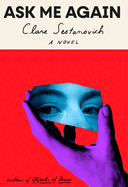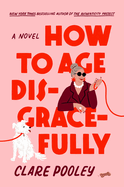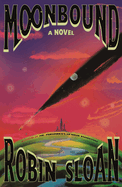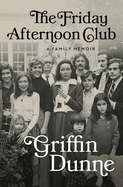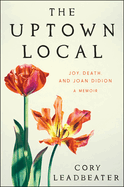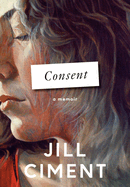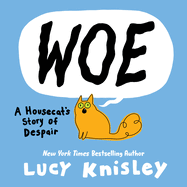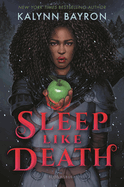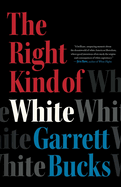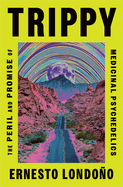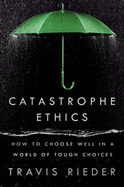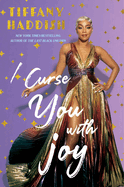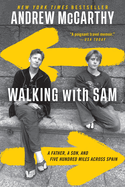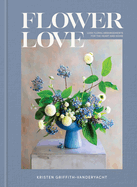Friday, July 5, 2024
This week, our stellar titles include Midnight Rooms by Donyae Coles, "a chilling and fantastical work of historical fiction" about a young bride's attempt to understand the family she's married into; and Running Close to the Wind by Alexandra Rowland, about a pirate crew on "a swashbuckling quest" that features "dangerous sea serpents, and an almost literally cutthroat cake competition." Plus, for teen readers, Break to You by Neal Shusterman, Debra Young, and Michelle Knowlden is a "captivating and tense portrayal of life in a juvenile detention center follows two teens who dare to defy boundaries for love"; and The First Week of School by Drew Beckmeyer is a "comical sci-fi romp" to reassure younger readers about the upcoming elementary-school year.
In The Writer's Life, novelist Tracy O'Neill discusses her new memoir, Woman of Interest, and the season of life in which she was searching for a sense of home and wondering who that included.
Midnight Rooms
by Donyae Coles
Donyae Coles offers readers a fairy tale--of both the romantic and horrific variety--in Midnight Rooms, a chilling and fantastical work of historical fiction.
Orphaned at a young age, 26-year-old Orabella has long been in the care of her aunt and uncle, a wealthy Bristol family whose status in society is not enough to land their mixed-race niece an offer of marriage. Until one day, when a stranger appears and asks for her hand--an opportunity her uncle sees as an end to his gambling debts. Despite her reservations, Orabella is rapidly pulled out of her current life and into a new one, wed to the strange Mr. Elias Blakersby and off to his family's estate in the countryside within a day. But upon their arrival at the estate, Orabella discovers that her happy ending may not be so happy after all. Thrust into a lavish world, Orabella is plied with honey wine and wakes from dreams that feel impossibly real. She's surrounded by relatives of questionable humanity and never allowed to be alone except when locked in her bedroom each night.
Coles turns the typical fairy tale upside down and inside out and back again. Midnight Rooms shifts to something like a fever dream, and a dark mystery unravels across its pages--what is Orabella's imagination, and what is real? What is a memory and what is a dream? What can be believed? With vivid and gory detail, Midnight Rooms is a genre-spanning work of history and horror, fantasy and fairy tale, that pulses with a dark energy from start to unsettling finish. --Kerry McHugh, freelance writer
Discover: A genre-spanning work of historical fiction and horror imagines a fairy tale romance turned nightmarish terror as a young bride tries to understand the family she's married into.
The Throne
by Franco Bernini, transl. by Oonagh Stransky
A man whose name would one day become an eponym for manipulation engages in a fraught but potentially symbiotic quest for fame with Cesare Borgia, a duke and the son of Pope Alexander VI, in The Throne, the first volume in Franco Bernini's Machiavelli trilogy.
In 1502, Niccolò Machiavelli is still a long way from being an iconic writer. He's deeply in debt and his dreams of fame as a poet seem doomed. But "occupying one of the lowest ranks in the administrative hierarchy, Niccolò is used to looking up." A sharp observer of the powerful, he has been ordered to spy on Borgia for the Florentine Republic (which Borgia has twice attempted to invade) under the pretense of serving as an envoy with the authority to negotiate an alliance but not to finalize it. However, complications arise when Borgia commissions Machiavelli to write a book to cement his legacy. Machiavelli becomes entranced first by the beauty of Borgia's captive, Dianora Mambelli, and then by her tragic story, which only leaves him further entangled.
Screenwriter and novelist Bernini's English-language debut, translated from the Italian by Oonagh Stransky, is a transporting portrayal of Renaissance-era political life. His cinematic touch is present in the historical detail of the setting and the dramatic tension between Borgia and Machiavelli. Borgia needs Machiavelli to preserve his life's story for the ages but also seeks to bind him with the offer of literary immortality. Although the novel's six epilogues are more than most readers would expect, particularly for the first book in a series, those readers will remain eager to follow Bernini through the rest of Machiavelli's life. --Kristen Allen-Vogel, information services librarian at Dayton Metro Library
Discover: Niccolò Machiavelli studies, seeks, and manipulates power in The Throne, a riveting depiction of Renaissance-era court life and the first book in a planned trilogy.
Swan Song
by Elin Hilderbrand
With high drama and a boatload of mystery, Elin Hilderbrand (The Five-Star Weekend; Golden Girl; The Perfect Couple) reels in the stunning final installment in her beloved Nantucket-set series. Readers will savor Swan Song's nostalgia as it brings back characters from earlier novels and adds a host of dynamic new ones.
Enigmatic, middle-aged Nantucket newcomers Bull and Leslee Richardson--a "hot commodity" power couple--purchase a lavish, $22-million oceanfront property and enlist Colleen "Coco" Coyle, an aspiring screenwriter in need of a big break, to serve as their "personal concierge" and assist in their quest to integrate into the island's society culture. Coco is befriended by Kacy Kapenash, a dedicated nurse from California who broke up with her girlfriend and returned home to visit her father, Police Chief Ed Kapenash, who has recently had a heart attack and is now facing retirement.
Then, the Richardson mansion mysteriously burns down and Coco goes missing on the same day. The police investigation and the town's rumor mill uncover the Richardsons' true identities and modus operandi. In doing so, salacious details regarding those in their orbit also come to light. This includes socially connected friends, a real estate agent, a landscape architect, a boat captain, a masseuse, and others.
Romance and island glitz infuse Hilderbrand's spellbinding 30th novel, which packs a juicy, suspenseful wallop that will satisfy devoted readers of her previous books and rare latecomers to the captivating Hilderbrand oeuvre. --Kathleen Gerard, blogger at Reading Between the Lines
Discover: The dual mysteries of a burned-down mansion and a missing young woman propel the riveting finale of Elin Hilderbrand's glitzy Nantucket series of novels.
The Lion Women of Tehran
by Marjan Kamali
Marjan Kamali's gorgeous, gripping third novel, The Lion Women of Tehran, paints a layered portrait of female friendship, unexpected cultural shifts, and second chances. In 1950s Tehran, seven-year-old Ellie is devastated and blindsided by her father's death, which forces Ellie and her mother to move to a smaller house across town. On the first day at her new school, Ellie meets Homa, a confident, bubbly local girl, and they become fast friends, spending hours together and dreaming of their futures, when they will become "lion women": bold, courageous, and successful.
Kamali (The Stationery Shop, Together Tea) sensitively portrays the complex bond between Ellie and Homa as they grow into young adults, two young women of differing social classes, temperaments, and ambitions. Kamali provides a nuanced look at the experiences of young women under the Shah's regime through their social circle. As the political landscape in Iran shifts rapidly, Ellie worries for Homa and her radical ideas, but neither of them can imagine how the country's political climate will shape the rest of their lives.
Narrated mostly by Ellie, The Lion Women of Tehran takes readers from the streets of Tehran to 1970s Manhattan, where Ellie and her husband eventually make their home. Homa narrates several brief sections where what's left unsaid is as powerful as what's spelled out. Kamali is unwilling to give her characters the easy way out, but their stories, despite the pain, always bend toward hope.
Insightful, compassionate, and grounded in historical detail, The Lion Women of Tehran is an evocation of a country upended and a tribute to the ways deep friendships shape our lives. --Katie Noah Gibson, blogger at Cakes, Tea and Dreams
Discover: Marjan Kamali's evocative third novel portrays a deep, complex female friendship against the backdrop of political turmoil in Iran.
Bear
by Julia Phillips
With Bear, National Book Award finalist Julia Phillips (Disappearing Earth) crafts her own version of a Grimm fairy tale. In lieu of the Snow-white and Rose-red of the original story, Bear introduces readers to Sam and her older sister, Elena. Where Sam rages against their lot--financial precarity, missed opportunities, and the looming certainty of their young mother's death--Elena faces it all with a calming strength, one that Sam relies on entirely.
Born 13 months apart, the sisters have shared everything, including the terror of their mother's last boyfriend and a dream one day to sell their ramshackle house and escape the oppressive nature of their life on Washington's San Juan Island. That shared dreaming gives Sam something to hope for, a way out. For Sam, almost everything is temporary, including her job at the food counter on the ferry and her relationship with coworker Ben. Elena is her only constant, but everything changes the day a bear shows up at their door.
To say more about what happens would spoil the taut brilliance of Phillips's narrative. Bear will keep readers up late into the night, gulping down the last pages with urgency and a fierce sense of protection for these sisters. Sam rails against the injustice of "the whole world, which was twisted and threatening and completely unfair, which demanded that Sam defend herself but never gave her any of what she needed to try." The book's single word title reminds readers of the creature that threatens, of course, but also of all the things women are forced to bear, even those that feel most unbearable. --Sara Beth West, freelance reviewer and librarian
Discover: Bear is a fast-moving river--smooth on the surface but churning underneath--and sisters Sam and Elena are caught in its inexorable current as they wrestle with conflicting hopes for the future.
Parade
by Rachel Cusk
Friendly warning for anyone hoping to go unnoticed through life: it's harder than one might think. That's especially true for anyone planning a family and a career in the arts, a combination that can make anonymity impossible. Rachel Cusk (Transit; Kudos; Second Place) explores this tension and others in Parade, four integrated pieces about a panoply of artists, all of them referred to as G. The G of "The Stuntman" has begun painting his subjects upside down in response to criticism from early in his career. Cusk juxtaposes this story with that of a woman who is attacked on the street and later immerses herself in art by other Gs, including a Black artist's tiny paintings, "a comment on marginality."
Marginality is one of many recurring themes in these exceptional pieces, from artists of color who feel unseen to women subjugated by men. In "The Midwife," G "had run away from her parents and her own country" to take control of her life and career, only to marry an abusive photographer. "The Diver" presents art world administrators discussing the struggle to separate from the dominion of oppressors, a conversation that occurs after a suicide at a museum. "The Spy" focuses on yet another G, a filmmaker whose guiding principle is to evade responsibility and recognition, even using an alias so that his mother wouldn't know the films were his. Cusk returns often to themes of freedom, relations between parents and children, and the question of whether conventionality hinders or stimulates creativity in this marvelous work. --Michael Magras, freelance book reviewer
Discover: Parade is a mesmerizing collection of four works about artists, all of them referred to as G, and the issues they face, from sexism and abusive husbands to the trauma of marginalization.
The Material
by Camille Bordas
Multilingual author and Guggenheim Fellow Camille Bordas (How to Behave in a Crowd) tackles comedy in her witty and poignant second English-language novel, The Material, which centers on an MFA program in Chicago, Ill., for stand-up comedians. Bordas is an astute observer of campus culture and cancel culture. These elements come together in a delightful tangle when the MFA program hires a controversial visiting professor. Everyone seems to have an opinion about Manny Reinhardt, a famous comedian whose reputation took a hit after he recently punched a man in the face. The news of his hiring comes on the winds of new allegations of "emotional misconduct" with younger women. Bordas's large cast of characters illustrate a range of reactions to what is acceptable in comedy--and in life. Polar opposites, especially within families, are often at play, the most distinct embodied by a set of identical twins who approach life in starkly different ways.
While The Material takes place over just one tumultuous afternoon and evening, Bordas reaches multiple emotional registers by shifting the novel's roving third-person perspective from students to teachers to family members. For example, she confronts the indignities of aging when a college professor visits his father, who has Parkinson's disease and has reluctantly moved into a nursing home after shooting someone at a bar. And she examines romantic relationships--and their absence--with another professor. All along the way, characters muse on their joke-writing processes and the anxieties that drive them toward humor. It's a fascinating--and funny--window into the human condition. --Nina Semczuk, writer, editor, and illustrator
Discover: Multilingual author and Guggenheim Fellow Camille Bordas's second novel in English is a witty book about culture, comedians, humor, and coping with life.
Four Squares
by Bobby Finger
What a journey older gay men have had to navigate since the 1980s, from the horror of AIDS to the absent friends and lovers who will forever define later life. That heartbreaking reality is at the center of Four Squares, a sweetly melancholy novel by Bobby Finger (The Old Place). Finger's narrative toggles between two eras in the life of Artie Anderson. In the 1990s, 30-year-old Artie writes taglines ("Cookie Squares. They're anything but.") for a New York ad agency when he'd rather write fiction, a dream he realizes with his novel, Four Squares. He spends evenings at Julius', the legendary Greenwich Village gay bar, with friends Adam and Kimberly, both of whom are shocked by the "dumb, soul-crushing luck" that has kept them from dying of AIDS. At the bar, Artie meets Abe, an elegant lawyer. They begin an on-and-off relationship, even though Abe can't quite bring himself to escape the closet.
By 2022, Abe has long since died. His widow and daughter, the latter of whom Artie is close to, are leaving New York. Artie, who is now a ghostwriter, accepts his agent's advice and volunteers at GALS, a gay and lesbian senior center, where new acquaintances reawaken dormant emotions. Finger does a nice job dramatizing Artie's fear of dying alone, and he movingly describes the terror and prejudice gay men and lesbians faced during the AIDS crisis and beyond. The novel doesn't break new ground, but audiences hungry for a warmhearted story will happily accompany Finger on the journey. --Michael Magras, freelance book reviewer
Discover: Four Squares is a warmhearted and moving chronicle of two eras in the life of one gay man: the 1990s and 2022.
Concerning the Future of Souls
by Joy Williams
Concerning the Future of Souls: 99 Stories of Azrael by Joy Williams is a bit like a puzzle as it tangles the familiar with the ineffable in areas as diverse as philosophy, mathematics, music, and faith. Each of the 99 bite-sized entries contributes to a large whole, united--though tenuously--around ideas of time and mortality. Those who haven't read Ninety-Nine Stories of God need not worry; Williams returns to her singular style in the micro-fiction form, but this impressive companion piece easily stands alone.
For some, the enigmatic proposal of a book described as a puzzle is an enticement promising the perfect amount of friction in their reading experience. A unifying feature is the intermittent conversation between Azrael and the Devil. Over the course of each fascinating story, it becomes clear that despite the continuity of death, Azrael's experience with humanity is changing. Azrael wonders: "Could it be that souls are leaving a person before the body dies?" When the Devil cynically agrees to the possibility, Azrael frets over the environmental degradation he has observed: "But where can they go?... Nature's vesture is no longer available... The mountains have been stripped of their holiness, the oceans of their mysteries." More than simply a polemic on climate change, however, Concerning the Future of Souls resists any attempt to reduce it to a single thread, and though its slim size makes it possible to consume in a single sitting, that would be a mistake. This is a book to linger over, with more questions than answers, and it is sure to be lauded for its intellectual breadth and masterful control. --Sara Beth West, freelance reviewer and librarian
Discover: Concerning the Future of Souls is a book to linger over, with more questions than answers, highly satisfied to pursue wonder and engage the unknown.
Ask Me Again
by Clare Sestanovich
Socioeconomic divides don't have to be exclusionary, a truism Clare Sestanovich (Objects of Desire) examines in Ask Me Again. Sestanovich has received well-deserved acclaim for her short stories, and with her easygoing first novel, she explores her themes more deeply.
The setting is Brooklyn, N.Y., from the mid-2000s to the 2016 U.S. presidential election. Teenage Eva is distinctly middle class, growing up an only child to a teacher mom and aspiring artist dad, both of whom "had certain ideas about rich people." One assumes that Jamie, Eva's wealthy contemporary who lives in an Upper East Side penthouse with his divorced art-collector dad, received a different lesson. Yet that penthouse is a place Jamie "often could not bear to return to." Soon, he makes himself a permanent guest at Eva's home, an arrangement her parents surprisingly embrace.
Part of the pleasure of this novel is the care Sestanovich takes to explore her characters' motivations as their lives take unpredictable turns, such as Eva's post-college internship at a Washington, D.C., newspaper, or the extremes to which Jamie goes in rejecting his family's wealth, extremes that include joining Occupy Wall Street and getting involved with an unconventional church. Further complicating relations are Eli, Eva's boyfriend from college who gets a job with a U.S. senator, and Jess, a rising star in Congress with whom Eva develops a close friendship. Like the novels of Elif Batuman, Ask Me Again follows 20-something urbanites through the vicissitudes of love and career. If not as tightly written as Sestanovich's short stories, the novel is an insightful portrait of the challenges of anxious young lives. --Michael Magras, freelance book reviewer
Discover: Clare Sestanovich's easygoing first novel chronicles the friendship between a young middle-class woman growing up in Brooklyn and a wealthy young man who rejects his economic advantages.
Welcome to Glorious Tuga
by Francesca Segal
Francesca Segal's cozy third novel, Welcome to Glorious Tuga, is set on a fictional South Atlantic island, and reflects on belonging through a conservationist's search for her father. Tuga de Ora is a British overseas territory with a mixed heritage resulting from the island's early settlement: Sephardic Jews, British and Dutch sailors, enslaved Nigerians, and Eastern European refugees. Cross this with the tropical lassitude of jungle, beaches, bougainvillea, and extreme heat, and Tuga is truly one-of-a-kind.
Charlotte Walker, a 29-year-old herpetologist, has been granted a year-long fellowship to study endangered Tugan gold coin tortoises. But she also is grasping onto the slimmest hope of finding her father there. On the boat to Tuga, the seasick Charlotte meets Dan Zekri, who's returning after 15 years in London to take over as the island's chief medical officer.
Charlotte may be FFA ("Folk From Away"), but most are quick to make her feel at home. Besides tortoise tracking, she puts her veterinary training to use by lambing and treating pets--but also finds herself delivering a eulogy for a piglet and rescuing library manuscripts from a silverfish infestation. Islanders are almost more suspicious of Dan, resisting his health initiatives such as a "Couch to 5K" program. Sparks fly between these two, but several things hinder a fling--not least the arrival of Dan's physiotherapist fiancée, Katie.
Segal (The Awkward Age) lovingly develops her quirky ensemble cast. Everyone knows each other in this small community, and the character interactions here are delightful. This gently tragicomic book is the first in a trilogy, so readers can look forward to more Tugan adventure and romance. --Rebecca Foster, freelance reviewer, proofreader and blogger at Bookish Beck
Discover: Set on a remote tropical island like no other, this cozy, romantic novel dramatizes a year of studying tortoises and investigating a paternity mystery.
Mystery & Thriller
How to Age Disgracefully
by Clare Pooley
In How to Age Disgracefully, Clare Pooley (The Authenticity Project; Iona Iverson's Rules for Commuting) delivers another offbeat comedy--with a hopeful message--that brings together a cast of quirky, raucous British pensioners whose lively antics will charm readers.
The novel is set at a London-area community center in need of revitalization--literally and figuratively. Lydia, a 53-year-old wife, mother, and once in-demand food stylist who is suffering a midlife crisis, has been hired to run the facility's new Senior Citizens' Social Club, but a ceiling collapse kills one of its members during their very first meeting. In addition to stepping up to establish the club, Lydia and the group also take on Maggie Thatcher, the "ugly-looking" dog who belonged to the deceased woman.
The small club is comprised of septuagenarians who are vastly different in background and temperament but who are all in search of adventure. The group includes a former businesswoman turned loner with secrets; an actor with kleptomaniacal tendencies who's tired of "playing grumpy old men" and dead bodies; a retired paparazzo; a hardcore knitting addict; and a woman who is "pushy" in every sense of the word, including how she navigates with her walker. Lydia learns that managing the health and safety of this less-than-sedate group on her cash-strapped budget is no easy task. And when the town threatens to bulldoze their hangout, the group rebels in hilarious ways, complete with help from kids at the nursery school housed in the same facility.
Readers are in for great fun as they travel along with Pooley's assembly of madcap characters who refuse to play by the rules--or to let their age limit them. -- Kathleen Gerard, blogger at Reading Between the Lines
Discover: This adventurous, madcap novel follows a group of rebellious British pensioners who must fight to keep their community center hangout open.
Science Fiction & Fantasy
Running Close to the Wind
by Alexandra Rowland
A swashbuckling quest, dangerous sea serpents, and an almost literally cutthroat cake competition bedevil a pirate crew in Running Close to the Wind, a raucous, banter-heavy fantasy adventure by Alexandra Rowland (A Taste of Blood and Iron).
Unapologetically libidinous intelligence agent Avra Helvaçi has become a man who knows too much. Fleeing to the open sea lands him in the metaphorical lap of the dread pirate Captain Teveri az-Ḥaffār, his perpetually irritable ex-lover. Avra, who needs Teveri "to be incredibly heroic and rescue the shit out of [him]," bargains desperately using his only asset: stolen copies of a classified recipe that lets the dominant navy sail safely past sea serpents during their long and aggressive mating season. Teveri, Avra, and the crew stake their honor and lives on a dangerous mission to test the concoction. They're joined by unfairly attractive, unfortunately celibate revolutionary-turned-monk Julian, who provides scientific knowledge and serves as an object of universal sexual yearning. The pirates can sell the recipe for an exorbitant sum if it works, but if it fails, their deaths will be "unpleasantly teethy."
Fans of Our Flag Means Death may appreciate this queer, sex-positive piratical comedy with fantasy elements that include glowing blue dogs, turtles the size of islands, and a hero with a possibly supernatural gift of luck. The novel's world-building is peppered with religious and political tensions that don't distract from the personal struggles of the leads, and the colorful supporting cast provides a level of zaniness reminiscent of Terry Pratchett's Discworld series. Laughter off the starboard bow! --Jaclyn Fulwood, blogger at Infinite Reads
Discover: This rollicking, banter-heavy fantasy pirate adventure features queer leads, a dangerous quest, and an even more dangerous cake contest.
Moonbound
by Robin Sloan
Millennia in the future, a boy engineered to re-create a legend breaks free to find his own purpose in Moonbound, a lush combination of science fiction and fantasy from Robin Sloan (Sourdough, Mr. Penumbra's 24-Hour Bookstore).
Twelve-year-old orphan Ariel lives in a small town created and controlled by a wizard named Malory. His foster brother, Kay, is about to become a knight but has "mislaid" his sword. Rather than attempt to remove the sword that everybody knows is impossibly stuck in its stone, Ariel fetches a sword from the tomb of an ancient warrior meant to fight AI dragons from a civilization long disappeared. On his first visit to the tomb, Ariel acquired the warrior's "chronicler and counselor," a self-aware creation of "hearty fungus onto which much technology has been layered," which serves as the novel's narrator. The chronicler recognizes this story--and recognizes that it has gone astray. Having unintentionally upended Malory's plans, Ariel escapes through the forest in hopes of finding help and returning to his brother, and discovers a wide world of talking animals, abandoned technology, and the power of story.
Drawing inspiration from classics such as A Wrinkle in Time and The Wizard of Oz, Sloan sends his hero on a journey full of endearing characters. Clovis, a wandering robot with many bodies, and Durga, "she who sleeps in the stars," will tug at readers' heartstrings. Readers who enjoy the work of Neil Gaiman and V.E. Schwab should check this out. --Kristen Allen-Vogel, information services librarian at Dayton Metro Library
Discover: A young boy escapes a wizard and rewrites his own hero's journey in this endearing science-fantasy adventure.
Biography & Memoir
Woman of Interest: A Memoir
by Tracy O'Neill
Tracy O'Neill's third book, the idiosyncratic memoir Woman of Interest, chronicles her search for the biological mother who gave her up for adoption in 1980s South Korea.
O'Neill (Quotients) was raised in a white family in New England. In November 2020, "I surrendered to obsession with a woman... I had an interest in getting my story straight." To find her, O'Neill contacted a private investigator, interviewed her adoption agency social worker, and took a DNA test. Through a distant relative, she learned that her birth mother, Cho Kyu Yeon, was still alive and had been a 38-year-old divorced mother of two when she became pregnant by a married man.
O'Neill resists the impulse to spin a tidy plot out of unruly family history. The dead ends, misconceptions, and delays all become essential to the narrative. O'Neill's December 2021 trip to Daejeon, South Korea, to meet Cho Kyu Yeon, along with some of her biological siblings and cousins, was more anticlimax than heartwarming finale. Lingering questions were exacerbated by translation issues: apps and relatives alike couldn't explain why Cho Kyu Yeon believed she'd miscarried. There was no magical emotional connection; instead, her birth mother struck her as a pathetic elderly woman with a bad dye job and a dubious past as a loan shark.
The memoir often assumes the hard-boiled tone of a mystery novel. It transcends disappointing personal experiences to muse on origins and endings. O'Neill's sardonic wit and quirky turns of phrase lighten a bittersweet, inconclusive story. --Rebecca Foster, freelance reviewer, proofreader and blogger at Bookish Beck
Discover: Tracy O'Neill's idiosyncratic memoir often assumes the hard-boiled tone of a mystery novel as it chronicles her search for the biological mother who gave her up for adoption in 1980s South Korea.
The Friday Afternoon Club: A Family Memoir
by Griffin Dunne
Actor and film director Griffin Dunne's The Friday Afternoon Club is a remarkable feat of storytelling that would surely meet with the approval of the incomparable writers in the author's family, including his father, Dominick Dunne, and his aunt, Joan Didion. Dunne candidly charts his coming-of-age amid cultural touchstones and iconic figures (Carrie Fisher is Dunne's longtime friend and confidante, Linda Lovelace briefly an acting partner) in Hollywood and New York City. He doesn't shy away from depicting his or his family's shortcomings, as when he describes himself as "the little con artist... always looking for the angle to do the least amount of work and get away with as much shit as possible." Dunne vividly describes sibling rivalries, addictions, and rises and falls in fortune with affection, understanding, and a wry and self-deprecating humor.
The memoir's most poignant through line is the fate of Dunne's younger sister, Dominique, whose murder at the hands of an abusive ex-boyfriend hangs like a specter over the family as the highly publicized and painful trial plays out. Dunne captures the anguish of this loss, not just in the immediate aftermath of his sister's death but also in the way that its ripple effects permanently reshape his relationships and perceptions of safety.
The Friday Afternoon Club is an unforgettable voyage through the story of a family who lived very much in the public eye and was quintessentially American in its origins and trajectory. It's a story of immigration, aspiration, excess, redemption, violence, celebrity, and ultimately, tenderness and compassion. --Elizabeth DeNoma, executive editor, DeNoma Literary Services, Seattle, Wash.
Discover: Griffin Dunne's taut trek through his family's history is an unforgettable, nearly impeccable, and a quintessentially American journey.
The Uptown Local: Joy, Death, and Joan Didion
by Cory Leadbeater
The Uptown Local: Joy, Death, and Joan Didion, Cory Leadbeater's elegant debut memoir, is a nostalgic meditation on the fluctuations of fortune and the power of literature.
Leadbeater grew up in a blue-collar family in Jersey City, N.J., with an abusive father. While he was a student at Columbia University, he landed a job as personal assistant to the writer Joan Didion. The six-month position wound up lasting nearly nine years, until Didion's death in 2021. Her calm wisdom--earned the hard way, by familiarity with death (Didion wrote the iconic memoirs The Year of Magical Thinking and Blue Nights about losing her husband and daughter)--helped Leadbeater keep going when setbacks such as his best friend's sudden death, his father's prison sentence for fraud, his partner's miscarriage, and the rejection of his novel by publishers worsened his addictions and suicidal ideation. Didion "loved me and it kept me alive," he writes, her "acceptance and validation... a buoy against an ocean of indifference."
Leadbeater's tone shifts through the memoir. Initially, there's breezy awe at joining a highbrow literary circle. Leadbeater met Didion via his professor and friend, the poet James Fenton. "I had stumbled sideways into history," he remarks, marveling at the privilege of being at the heart of New York City life: taking taxis, reading the Times over coffee, meeting Fenton for dinner at a sidewalk cafe. Early similarities to Joanna Rakoff's My Salinger Year fade as the memoir turns more somber and elegiac, but Leadbeater's insightful, allusive prose is a joy. This tribute to Didion is also a study of luck, resilience, and the legacy of kindness. --Rebecca Foster, freelance reviewer, proofreader and blogger at Bookish Beck
Discover: Cory Leadbeater's elegant debut memoir, a nostalgic meditation on the fluctuations of fortune and the power of literature, is also a tribute to the late Joan Didion.
Consent: A Memoir
by Jill Ciment
Consent, Jill Ciment's 10th book, is a frank reexamination of the central relationship of her life--one that would be viewed differently if it began today. In early 1970, Ciment met her husband, Arnold Mesches, when she was a 16-year-old student in his life drawing class. Forty-seven and married, he had a daughter Ciment's age. Despite that unpromising start, the pair spent 45 years together--she a novelist, he a painter--mostly living in Manhattan and Florida, until Mesches's death at 93.
Layers of recollection and interpretation construct a fascinating interrogation of personal history. Ciment (Act of God) achieves this via close readings of scenes from her previous memoir, Half a Life, such as one describing the first kiss between the two. In this scene, Ciment wrote that she kissed Mesches first, yet memory tells her that he initiated the kiss. Why the discrepancy? "There is empowerment in remembering oneself as the sexual aggressor..." she theorizes. "But I don't believe that was my motivation." Ciment also notes that the age of consent in California is 18; making herself the seducer precluded Arnold being labeled a predator. Her brother's molestation by a family friend provides a striking counterpoint.
Was she a "Me Too," a victim? Ciment asks. The strata of perspectives complicate the matter: "the agonized teenager," "the forty-four-year-old memoirist," "and me, the one who knows how the story ends." Ultimately, Ciment depicts her and Arnold's as a love story. By today's mores, the relationship remains troubling, but her bravery in confronting it is to be commended. The author's grappling with memory and nuance gives this memoir bite. --Rebecca Foster, freelance reviewer, proofreader and blogger at Bookish Beck
Discover: In this frank memoir, Jill Ciment asks whether the mores of the #MeToo movement apply to her marriage, since she met her husband in 1970, when she was 16 and he was 47.
Bird Milk & Mosquito Bones: A Memoir
by Priyanka Mattoo
In her charmingly titled debut, Bird Milk & Mosquito Bones: A Memoir, filmmaker Priyanka Mattoo offers an impassioned account of a family forcibly displaced from their ancestral homeland of Kashmir and an improbable path that led to love, motherhood, and creative success in Los Angeles, Calif. An origin story inlaid with whimsical Kashmiri proverbs, the memoir brims with humor and startling honesty as Mattoo offsets chucklesome anecdotes about arriving in the U.S. as a high school freshman with the isolation of a childhood that stretched from Srinagar and London to Riyadh and New York.
A former talent agent, Mattoo has contributed to the New York Times and the New Yorker, where a portion of these essays have previously appeared. Through the shifting process of recalling her earliest memories of Kashmiri life, she evokes not only the stunning natural beauty of the region but also its unfortunate position as a prize fought over by two nuclear-armed countries. Here, her voice joins with other writers, including Arundhati Roy, as their courageous essays bring attention to India's military occupation of the disputed land.
Mattoo's skillfully crafted memoir is a family tapestry that harkens back to her great-grandparents yet is firmly rooted in the present. Through her parents, she connects her children with their Kashmiri heritage, and she also celebrates her husband's Jewish heritage. She shares her mother's recipe for delicious rogan josh alongside comically wry observations on her South Asian upbringing. Ultimately grateful for her lot in life, Mattoo concludes that, while home can be an elusive concept, it's the people who sustain us. --Shahina Piyarali
Discover: Debut memoirist Priyanka Mattoo reflects on her Kashmiri homeland with longing and shares comically wry observations on her South Asian upbringing in Srinagar, London, Riyadh, and New York.
Science
The Air They Breathe: A Pediatrician on the Frontlines of Climate Change
by Debra Hendrickson
In The Air They Breathe, pediatrician Debra Hendrickson forcefully argues that rapidly ceasing the use of fossil fuels, transitioning to renewable energy, and rethinking norms of everyday life in terms of how people commute, how they eat, and even how they design technology is paramount to keeping children healthier. Hendrickson tracks the impacts on infant, child, and adolescent health, looking at respiratory health and susceptibility to an increased range of diseases, as well as being prone to suffer more acutely from extreme weather. Other impacts include negative consequences to children's mental health, such as climate anxiety and an inability to consider a thriving future, and post-traumatic stress disorder from surviving climate disasters such as severe storms, fires, and floods. In the light of her experiences as a medical professional, she insists that children are the proverbial canaries in the coal mine.
The stories Hendrickson relates about the experiences of her child and teenage patients are eye-opening and heart-wrenching; she details a fear faced the world over as families contend with challenges that feel impossible in an environment where policy change moves more slowly than the need for it. But most importantly, Hendrickson does not focus only on the negatives. She also highlights opportunities to build a better world for current and future children, making sure that there are paths forward for everyone. As Hendrickson says, "Surely our science will yield more than a chronicle of our end." The Air They Breathe is a necessary work for anyone looking to understand how climate action's long-term effects are even more expansive and vital to prioritize. --Michelle Anya Anjirbag, freelance reviewer
Discover: A compelling argument for seriously addressing climate change as a global community--for the sake of the health of all children.
Children's & Young Adult
Break to You
by Neal Shusterman, Debra Young, and Michelle Knowlden
This captivating and tense portrayal of life in a juvenile detention center follows two teens who dare to defy boundaries for love.
Adriana Zarahn has been assigned to Compass Juvenile Detention Center after numerous "stupid decisions." To cope, she pours her heart into a journal that she misplaces. When she finds it, it is shelved in the library and fully annotated by Jon Kilgore, a teen from the sex-segregated facility's boys' side. "You're fierce," he comments. "Fierce, huh?" she writes back, and asks him to share about himself. "Give me something real." So begins a forbidden, magnetic love story.
National Book Award winner Neal Shusterman (Challenger Deep; Game Changer), author Debra Young (who died in 2024, before this book's publication), and former space shuttle engineer Michelle Knowlden weave a remarkably seamless third-person narrative that switches between Adriana's and Jon's vividly voiced perspectives. Jon, who wields a brutal reputation upheld by rumors and a "scary history," focuses on avoiding transfer to an adult male prison; meanwhile, Adriana builds rapport with the girls' established pack through fists and favors. The romance here is gravitational ("The truth of you. It feels like the stuff of stars," Jon tells Adriana). Even the teens' potential eye contact stops the heart, and every illicit letter exchanged intensifies both their love and what they're willing to risk for it. Buoying it all is phenomenal prose ("Emotions spin into a tornado so full of flying shrapnel, he can't function") and strong humor (" 'I'll owe a solid'... 'You'll owe me liquid and gas too' "). Break to You is electrifying. --Samantha Zaboski, freelance editor and reviewer
Discover: This captivating and tense portrayal of life in a juvenile detention center follows two teens who dare to defy all boundaries for love.
The Second Chance of Darius Logan
by David F. Walker
Eisner Award-winning author David F. Walker (Bitter Root; The Black Panther Party: A Graphic Novel History) joins the YA world with The Second Chance of Darius Logan, a fast-paced and action-packed dystopian superhero origin story.
Black 16-year-old Darius Logan knows nothing but survival. Almost eight years ago, Darius's family was killed in an event known as "The Attack," which produced "fiftysomething square miles of devastation." Since then, Darius has been in and out of foster homes, juvenile detentions, shelters and running the streets. But when Darius is caught by Captain Freedom, his childhood hero, with a backpack full of an illegal drug called eXXeLL, he's given the choice to either serve 15 years in prison or take part in Second Chance, a new program for reformed criminals. Darius chooses to serve his time at Super Justice Force Headquarters and becomes the first person to go to Second Chance without having previously served time. However, as lucky as Darius may be to escape doing prison time, he is unprepared for what it means to accept placement with Super Justice Force--Darius is going to be a superhero.
Walker's skilled character development shows the young man's immense growth over his few years at Super Justice Force Headquarters; Darius remains observant and street smart, while also gaining the ability to trust others and work through his intense feelings of loss and grief. Secondary characters like Elladia, Darius's love interest, and Manny, his supervisor, further support his growth and introspective nature. Darius ultimately is the superhero of his own story and an impactful example of why second chances matter. --Kharissa Kenner, children's librarian, Bank Street School for Children
Discover: Sixteen-year-old Darius Logan is given a second chance at life by working at Super Justice Force Headquarters in this gripping, superhero origin story.
The First Week of School
by Drew Beckmeyer
Young readers who happen to spot this book's dedication--"For Nobody"--will have a head start on understanding that The First Week of School is a different kind of picture book. Drew Beckmeyer (I Am a Tornado) manages two feats at once: his book is a comical sci-fi romp as well as a reassuring hand-holder for readers all a-jitter about the new elementary-school year.
At first, things seem normal. "Monday" tops one page, followed by pages headed with descriptions of the day's activities: "This is Show and Tell." "This is Recess." "This is Outer Space"--wait. What? As the days of the school week and their corresponding activities play out, side plots are devoted to students' insecurities and competitive natures--typical school stuff. Meanwhile, only the class pet, bearded dragon Pat, notices when a spacecraft hovers over the school, and only she understands that what the teacher calls "our new student" is a bona fide space alien. Yep, typical school stuff.
Despite its abiding humor and speculative aspect, The First Week of School is a warm and disarming account of the elementary-school experience. (The book should also hold plenty of sympathy-arousing amusement for the adult set, as when the teacher, who forgets her lunch one day, winds up eating some old cereal she finds in a cabinet.) To render all the book's plot strands and sight gags, Beckmeyer works assiduously in a naïve style using that quintessential elementary-school medium, crayon, albeit in a range of colors out-pizzazzing the traditional art-class assortment. --Nell Beram, freelance writer and YA author
Discover: This unconventional picture book is a comical sci-fi romp as well as a reassuring hand-holder for young readers all a-jitter about the new elementary-school year.
Woe: A Housecat's Story of Despair
by Lucy Knisley
Lucy Knisley, author of the Peapod Farm series, introduced the world to her persnickety feline friend, Linney, through online comics. In the sweet and silly young adult comic collection Woe, old and new illustrated stories have been compiled, turning Linney from an Internet phenom to a book super-star. Knisley shares tales with which many cat lovers will identify, while non-cat-savvy readers should also find plenty to enjoy in this ode to a cantankerous pet.
Knisley explains her somewhat abstract depiction of Linney in the introduction, saying "it's much better to try to draw [a cat's] personality, rather than an accurate visual representation." Linney's "apricot-hued" personality exudes disdain, apathy, sass, imperiousness, and plenty of drama. She places herself squarely between the human and their book, knocks a glass of water on an unsuspecting head, and weaves around human feet as they try to walk. And when Linney does receive the attention she claims to want, she dashes away to hide, demanding to be left alone. It's the kind of humor that seems madcap to the uninitiated but is familiar territory to cat owners.
Knisley's narration of Linney's thoughts adds to the whimsy of the collection. She is nonchalant about all her fans, proud of her sock-hunting ability, and a martyr when a human forces her into the cat carrier: "Noooo! I am innocent! A blameless angel, falsely imprisoned for crimes committed by another!" Nestled amidst the hilarity of cat antics is the emotional connection people have with their finicky little fur balls. Knisley's love for Linney is heartwarming and will likely have her fellow felinophiles snuggling their own kitties. --Jen Forbus, freelancer
Discover: A comics creator pays a heartfelt and hilarious tribute to her "dear old cranky pet."
Sleep Like Death
by Kalynn Bayron
Kalynn Bayron returns to the fairytale realm of her debut, Cinderella Is Dead, with Sleep Like Death, a frightening, intoxicating spin on "Snow White" about a teenage princess determined to defeat an ancient monster.
Sixteen-year-old Princess Eve has trained all her life to defeat the Knight, a monstrous "myth made real." The Knight preys on the citizens of Queen's Bridge who are most desperate, granting them their deepest wishes twisted into horrible curses. Even the royal family is not immune to the Knight's devious compacts; Queen Sanaa, one of Eve's mothers, was transformed into a nightingale after she wished to have "the loveliest voice in the land." Eve, who can communicate with animals and conjure weapons from nature, is known as "the Queen's fury," and is certain she will be the one to take down the Knight. After an attempt at besting him results in the death of a friend, though, Eve learns shocking details of a previous deal another of her mothers, Queen Regina, made with the Knight. The teen is forced into hiding and must steel her will to return, slay the Knight, and free the subjects of Queen's Bridge from his reign of terror.
Bayron brings an inventive spin to her adventure-filled "Snow White," and weaves in new takes on several other fairy tales, such as "Sleeping Beauty" and "Rumplestiltskin." Eve isn't a traditional fairytale princess--she's fearless, disciplined, magical, and a gifted hunter, in addition to being devoted to her family and kingdom. Fans of dark fantasy and fairytale retellings, such as Gabi Burton's Sing Me to Sleep or Anna-Marie McLemore's Dark and Deepest Red, should enjoy this dramatic YA crusade. --Natasha Harris, freelance reviewer
Discover: Sleep Like Death is a frightening, intoxicating spin on "Snow White," about a teenage princess determined to defeat an ancient monster.
In the Media
The Writer's Life
Tracy O'Neill: Many of Us Become Investigators of Ourselves
 |
|
| Tracy O'Neill (photo: Oskar Miarka) |
|
Tracy O'Neill's memoir, Woman of Interest (HarperOne, $28.99; reviewed in this issue), recounts her search for her biological mother in 2020-21, which involved investigative research and a trip to South Korea. Her previous books are the novels The Hopeful and Quotients. In 2015, O'Neill was a National Book Foundation 5 Under 35 honoree. She is an assistant professor of English at Vassar College.
In November 2020, you contacted a private investigator to help you find your biological mother--but you ended up not hiring him and doing much of the legwork. Did it seem like you had temporarily become a PI yourself?
Joe, the private investigator, became something like my private investigation sensei. During those couple of years, I did become an investigator of sorts, as you say, absolutely. Many of us become investigators of ourselves and those who we take to be of interest to varying degrees. I think this is beautiful and optimistic.
You ran into a number of problems, including the unreliability of documentation related to your adoption (even basic information like the spelling of your birth mother's name). How did this affect your confidence in your origin story and in written history in general?
Throughout the search, I vacillated in my degree of confidence in details. But also, I am just generally someone who takes history to be constructed, riddled with mistakes, and interpreted. Like many academic types, I'm looking at what's useful and where the logic hiccups when I look at documents. To be a disgusting pig vis-à-vis cliché, I also seem to be thinking about the sausage-making of narratives.
The language gap was another persistent issue when communicating about and with your family in South Korea. What did you feel about how technology (and relatives or strangers with agendas) translated sensitive interactions such as your first conversations with your biological mother?
I'm so sensitive to language--when the language is English. But in Korea, it was as though I'd lost a whole sense. I often wondered if Google Translate or Naver Papago, the other translation app used, caught the connotation someone intended. In other moments, however, it was as though the language apps said something more plainly and clearly than perhaps even the speaker intended. Something true of what they seemed to feel was conveyed, even if they hadn't quite meant to so baldly reveal themselves, such as when (late in the book) my mother speaks of her "mother's wish" [to see her daughter married].
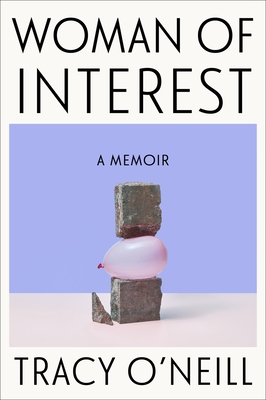 This whole quest happened at the height of the pandemic. How did Covid circumscribe how you went about things? Can you see any way in which those limitations may actually have been beneficial?
This whole quest happened at the height of the pandemic. How did Covid circumscribe how you went about things? Can you see any way in which those limitations may actually have been beneficial?
A lot of the "official" or "legitimate" ways of searching were unavailable to me. I also had a considerable amount of time to obsess without distraction. In this way, I was perhaps more pushed to seek answers myself, and therefore to have more conversations with people. I also might have treated that period of my life as a season of more gradual change than a come-to-Jesus moment.
Toward the end there's a sense of letdown when you don't experience instant emotional connection with your newfound family. What made you decide to turn this disappointment into a key element of the book rather than just think, "Oh well, there's no good story here"?
To me, the subversion of expectations often is exactly what makes for a good story. Paradoxically, as a reader, I don't necessarily want to get what I hope for. So I didn't really worry about that.
Your relationship with your Serbian boyfriend, N, deteriorates almost in parallel to the investigation. How do you see this as reflecting on the main plot?
This is a book that explores a time in my life in which I was searching for a sense of home and wondering who that included. As it turned out, neither N nor Cho Kyu Yeon were people with whom I could make a home. Sometimes, you take a chance on a boyfriend or a mother or a stray dog. You don't want your life to be small and controlled. You realize something of your life has become a locked and padded room. You take a leap of faith in other people and also in yourself, that you can go on, you will go on, and in moments those leaps are irrational, and maybe a little sad, but still provocatively alive.
In terms of genre considerations, how was this narrative shaped and how did you push against the conventions of memoir?
I knew that my own experience gathered the story, so I felt very free to take liberties with forms and genre. There's obviously a procedural plotting that strings the narrative together, but in moments there are other weird impulses that I followed. The final chapter moves between something like an essay and a frame narrative and poem. This is a work of memory, like all memoirs, but it was important to me that I did not end the book in a way that suggested that the logical end of memory is an ossified conclusion. I wasn't going to do false consolation or unearned redemption.
The book is also quite dialogue-heavy in many sections, which is common in detective fiction and noir. I thought about how Cho Kyu Yeon was something like a femme fatale, but also a missing person, but also an outlaw woman. I thought about how the person I could be felt like a missing person in a terrible couple of years for people collectively. I wanted to mobilize the figure of the detective in thinking about how we look for the clues to ourselves when we're lost and desperately wish to "solve" ourselves.
Do you have any enduring bond with Cho Kyu Yeon and/or the siblings and cousins you met on your trip?
Perhaps the book is an enduring bond of sorts. We haven't spoken since August 2023. --Rebecca Foster
Book Candy
Book Candy
Mental Floss's challenge: "Quiz: Can you Guess the Popular Book Based on Its Obscure Subtitle?"
---
In the Guardian, cartoonist Tom Gauld imagines a future "when book festivals go rogue."
---
Merriam-Webster offers "8 Words With Fascinating Histories."
Rediscover
Rediscover: Ismail Kadare
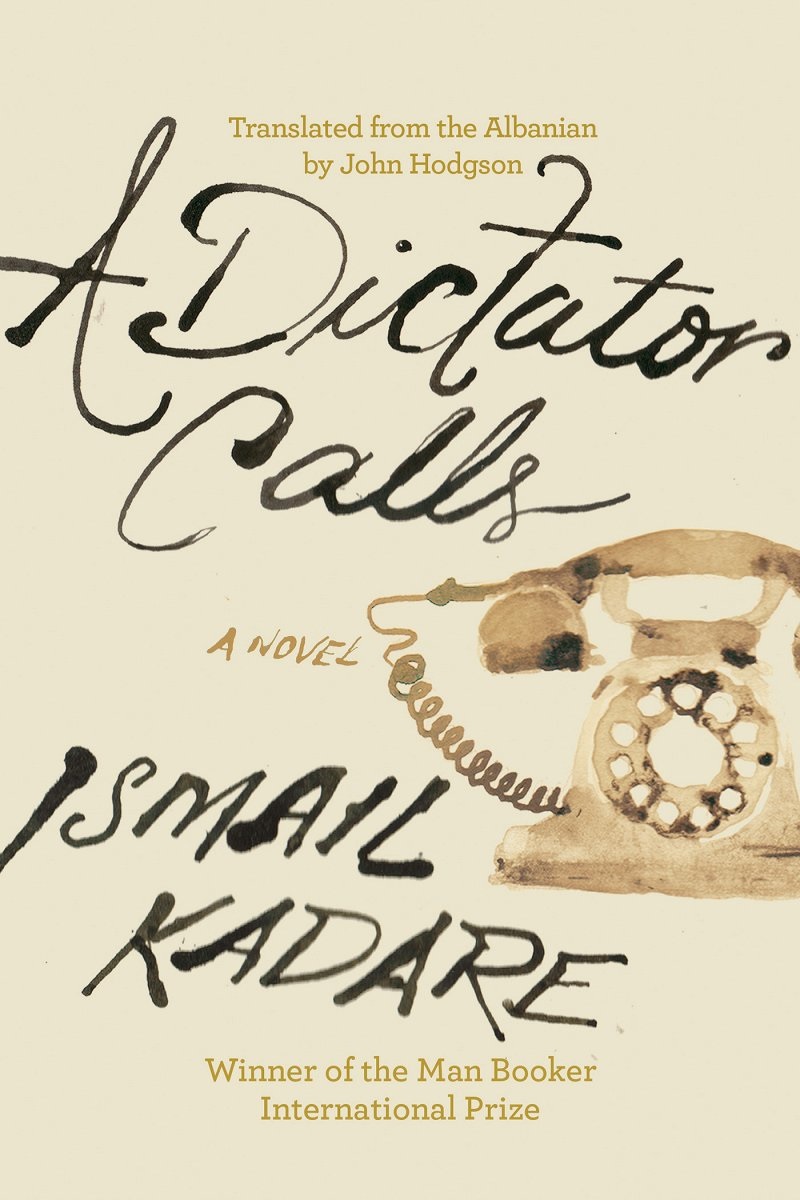 Ismail Kadare, Albania's best known novelist and poet, died July 1 at age 88. His most recent book, A Dictator Calls, about a phone call between Joseph Stalin and Boris Pasternak, was published by Counterpoint last September.
Ismail Kadare, Albania's best known novelist and poet, died July 1 at age 88. His most recent book, A Dictator Calls, about a phone call between Joseph Stalin and Boris Pasternak, was published by Counterpoint last September.
He received the Légion d'Honneur as well as the inaugural Man Booker International Prize, then a lifetime achievement award, in 2005; the Prince of Asturias Prize for the Arts in 2009; the Jerusalem Prize in 2015; and the America Award in Literature for a lifetime contribution to international writing in 2023. Kadare also produced poems, essays and screenplays.
Writing for many years under the shadow of Albanian dictator Enver Hoxha, Kadare "examined contemporary society through the lens of allegory and myth in novels including The General of the Dead Army, The Siege and The Palace of Dreams," the Guardian reported. "After fleeing to Paris just months before Albania's communist government collapsed in 1990, his reputation continued to grow as he kept returning to the region in his fiction." Kadare's books have been translated into more than 40 languages.
Albanian President Bajram Begaj praised Kadare as the country's "spiritual emancipator.... Albania and Albanians lost their genius of letters... the Balkans (lost) the poet of its myths, Europe and the world (lost) one of the most renowned representatives of modern literature."
Kadare published his first collection of poetry when he was 17. After studying at Tirana University, he won a government scholarship to study literature at the Gorky Institute in Moscow, which inspired a novel about two students reinventing a lost Albanian text. When he published an extract in a magazine, it was banned, the Guardian wrote.
"It was a good thing this happened," Kadare said in 2005. "In the early '60s, life in Albania was pleasant and well-organized. A writer would not have known he should not write about the falsification of history."
When he published The General of the Dead Army (1963), a novel about an Italian general who travels across Albania in the 1960s to recover the remains of Italian soldiers who died during World War II, Albanian critics attacked it for the lack of the socialist realism required by Hoxha's regime, but when the book was published in France in 1970, it caused a sensation, the Guardian noted.
Kadare spent the next 20 years charting a course between artistic expression and survival. After his political poem "The Red Pashas" was banned in 1975, he painted a flattering portrait of Hoxha in his 1977 novel The Great Winter. In 1981, he published The Palace of Dreams, which was banned.
When Hoxha died in 1986, the new president, Ramiz Alia, began to take tentative steps towards reform, but Kadare decided after meeting with him that there was "no possibility of legal opposition in Albania" and that "more than any action I could take in Albania, my defection would help the democratization of my country." In Paris, Kadare began to publish work tackling totalitarianism more directly, with titles like The Blinding Order and The Pyramid.
"For a writer, personal freedom is not so important," Kadare once said in an interview. "It is not individual freedom that guarantees the greatness of literature, otherwise writers in democratic countries would be superior to all others. Some of the greatest writers wrote under dictatorship--Shakespeare, Cervantes. The great universal literature has always had a tragic relation with freedom. The Greeks renounced absolute freedom and imposed order on chaotic mythology, like a tyrant. In the west, the problem is not freedom. There are other servitudes--lack of talent, thousands of mediocre books published every year."
Read what writers are saying about their upcoming titles


